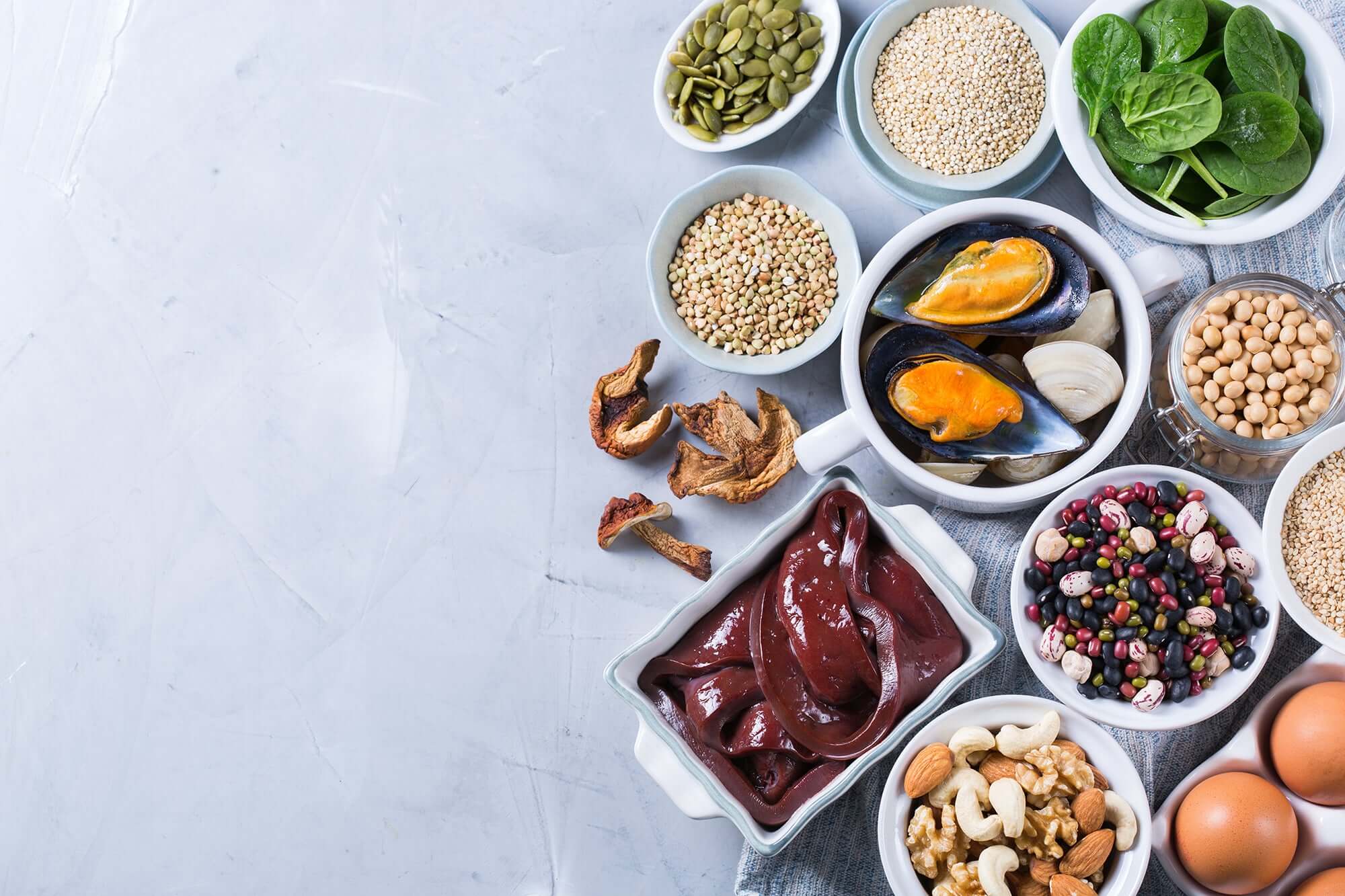

· By Jamal Ayton-Brown
Did you know that iron isn’t naturally made in the body and that we only absorb it from what we eat? It’s kinda crazy considering that it’s a pretty important mineral for making haemoglobin (a protein contained in red blood cells that transports oxygen around the body).
Put simply, there are two main forms of dietary iron: haem iron and non-haem iron. Haem iron is typically found from animal products (your red meats, fish and poultry) whilst non-haem is the opposite and more plant-based (your chickpeas, beans and dark green leafy veggies.) Iron can also be found in fortified products such as breakfast cereals or flour, however always read the label to make sure.
Haem iron is your body’s preferred source of iron as more of it is easily absorbed. Some studies have shown that consuming foods high in vitamin C alongside a meal can actually increase your iron absorption, so pour that glass of orange juice or make your dessert a fruit plate filled with strawberries, clementines, cherries etc.
For healthy individuals you should be able to get all the iron you need through your diet if it is varied and balanced. Menstruating females can sometimes be at a higher risk of iron deficiency due to heavy periods and may need to take iron in a supplement form. Iron supplementation is also a good way to help combat low energy levels in females, however, always speak to your GP or a registered dietitian before starting to take a supplement.
Animal products which are high in iron include:
Fish based sources also contain small amounts of iron such as:
Iron-rich plant-based sources include:
Nobody likes to eat the same thing over and over again and fortunately iron is present in a variety of foods. So, get experimenting and mix it up to make consuming iron simply delicious!
P.S.
Check out the next post in our ‘Much Needed Mineral Series’, namely What Potassium Is Good For. If you also need a little energy boost and one of the healthiest alternatives to coffee, why not have a look at our jrny Vegan Protein Powder.
At jrny, we are made up of a team of Sports Scientists and Registered Nutritionists. We want to make sure that we’re not just putting up the pseudo-science you’d see on other sites. If any of our staff put anything on our blog that relates to your health, you can bet that it is backed by evidence-based science! It always will be. That’s our commitment to you.
References:

The information in this post was adapted from information provided by Registered Associate Nutritionist Sarah Tipping. Follow her @eatingwellwithsarah.
Your cart is currently empty.